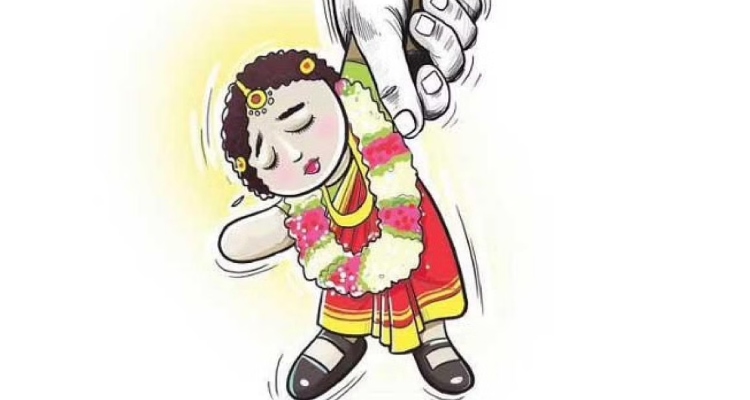
The Supreme Court on Friday has ruled that the Prohibition of Child Marriage Act can’t be undermined by traditional practices under any personal law, emphasizing that child marriages infringe on the fundamental right to choose a life partner.
A bench consisting of Chief Justice of India (CJI) D.Y. Chandrachud, Justices J.B. Pardiwala, and Manoj Misra issued a series of guidelines aimed at enhancing the effective implementation of the law against child marriages in India.
The bench noted that the question of whether the PCMA should take precedence over personal laws is currently under consideration by Parliament, with the Centre urging the court to affirm the supremacy of the PCMA.
CJI Chandrachud pointed out that the judgment involved an extensive sociological analysis, stating, “While the PCMA seeks to prohibit child marriages, it also addresses the significant social malaise of marriages fixed during a child’s minority, which violates their rights to choice.”
He stressed that such practices deprive children of their agency and the opportunity to make informed decisions about their partners and life paths.
The court recognized the need for an intersectional approach to tackle child marriages, particularly considering the vulnerabilities faced by children, especially girls, from marginalized communities.
“Intersectionality involves accounting for factors like gender, caste, socio-economic status, and geography, which heighten the risks of early marriage,” the CJI explained.
To combat child marriage effectively, the court emphasized the necessity of tailored preventive strategies that address the unique needs of different communities, along with root causes such as poverty, gender inequality, and lack of education.
The judgment highlighted that the PCMA will only succeed through collective efforts among all stakeholders, advocating for a broader social framework and multi-sectoral coordination.
The Supreme Court also called for improved reporting mechanisms, expanded public awareness campaigns, and investment in the training of law enforcement personnel. The implementation of these guidelines should prioritize prevention before protection and protection before penalization, acknowledging the potential negative impact of criminalization on families and communities.
“To ensure the effective use of the penal provisions in the PCMA, widespread awareness and education about child marriage and its legal consequences are crucial,” the court stated. However, it clarified that this should not be interpreted as a discouragement of prosecuting those who engage in illegal activities.
The court concluded that law enforcement agencies should prioritize efforts to prevent and prohibit child marriages, rather than focusing exclusively on prosecution. This judgment arose from a Public Interest Litigation filed by the Society for Enlightenment and Voluntary Action, which sought more effective implementation of the law to combat child marriages.
Through this ruling, the Supreme Court reinforces the imperative to uphold the rights of children and protect them from the harms of early marriage, thereby fostering a more equitable society.




